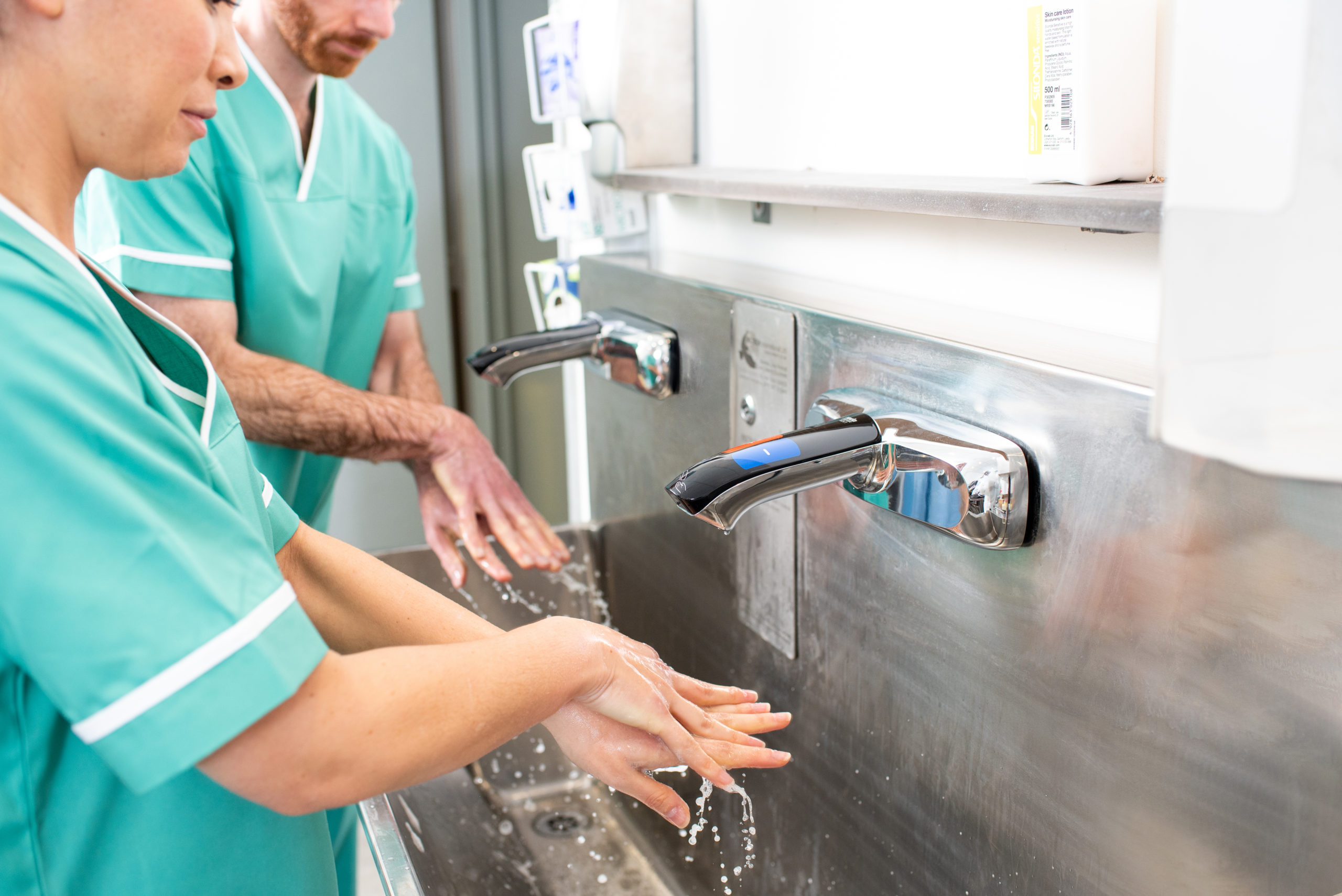Innovative water delivery solutions can help hospitals control infection

The pandemic has put pressure on services but also pushed forward innovation to tackle the significant challenges of frontline infection control and prevention that the NHS should build on.
The NHS response to the Covid-19 pandemic was driven at speed by the rapid adoption of innovation, from diagnostics to vaccines and data. It is crucial that these welcome advancements in the use of technology are now turned into meaningful change across the whole NHS, to protect patients and healthcare professionals, while driving greater efficiencies. To achieve this, we must design hospitals that are fit for the future and embrace innovation in every form it takes, including in the critical area of water delivery solutions.
Every year, 50 billion cubic litres of water are used in hospitals around the country. Although water is a vital resource for achieving infection control and prevention, mismanagement of water can also lead to outbreaks of dangerous water-borne diseases, which have a high-mortality rate, and put patient safety and health at risk.
As we reflect on the pandemic, we need to make forward-thinking decisions about infection prevention, embracing digital innovation and promoting compliance with infection control measures.
Impact of Covid on infection prevention
Water delivery solutions are at the frontline of infection prevention in healthcare settings across the UK. Hand hygiene is widely understood as being the main driver for reducing the transfer of infections in the healthcare environment and Covid has reignited important conversations about how best to achieve compliance with handwashing measures.
Government advice during the pandemic stated that, where possible, contactless technology should be used to prevent cross-contamination and improve infection control as it removes the fomite transmission pathway. A January 2021 study found that hospitals with automated hand-hygiene monitoring systems had an advantage during the pandemic, in part due to their ability to quickly gather robust hand-hygiene data on compliance, with minimal investment of personnel time.
This drive to use innovative technology to promote infection control has also been seen in other parts of the hospital estate. The National Standards of Cleanliness 2021 – published in response to the pandemic – stipulate that “consideration should also be given to audit technologies that use objective evidence-based methodology to support the subjective measurement and efficacy of the cleaning process”.
Data shows that six per cent of patients in NHS hospitals acquire a healthcare-associated infection, and three per cent of these patients will die. Most patients in hospital settings are typically vulnerable to infections like legionella and pseudomonas due to their age, existing comorbidities and the presence of invasive devices. Applying the same innovative spirit seen across patient care to water delivery can solve real-world problems and drive operational efficiencies through a focus on both preventative and monitoring measures.
Tackling water-borne viruses
Rada’s Intelligent Care range supports the NHS to deliver safe, efficient and sustainable water in healthcare settings. These solutions reduce the risk of microbial growth as the plastic materials and rubber diaphragms that are a high risk for growth have been removed, reducing the opportunity for outbreaks of water-borne viruses.
To further minimise the risk of dangerous bacteria build-up, all taps used in hospital estates should be regularly flushed. This is an important but hugely time and resource intensive process that is open to human error. Rada’s Intelligent Care solutions are programmed to “duty flush” automatically, saving significant staff time and driving operational efficiencies by minimising opportunities for error and water wastage. This ability to consistently monitor the performance of every tap in the network also means that abnormalities can be identified immediately and any remedial action can be taken quickly.
Cross-contamination is also a leading cause of healthcare-associated infections. In response to this, Rada has removed touchpoints from the handwashing process, meaning the spread of viruses and faecal matter between each use is reduced. This intuitive no-touch control of water flow and temperature also encourages users to comply with hand-hygiene procedures, supporting the health and wellbeing of patients through smart design.
The new hospital building programme, which commits the Government to building 40 new hospitals by 2030, should ensure that buildings are designed using innovative technology that minimises the risk of infection. The Government has a critical opportunity here to play an active role in ensuring the safety of patients, healthcare professionals and staff, while preparing the NHS estate for future pandemics.
The Rt Hon Edward Argar MP, Minister of State for Health, is right to say that “investment in our NHS buildings will transform health services for millions of people for decades to come, by putting world-class patient care, staff wellbeing and sustainability first”. This is true of all hospitals, whose leaders must now embrace innovation in water delivery to drive operational efficiencies, reduce water wastage and play their full role in building a more efficient and sustainable NHS.
Senior NHS executives have emphasised that “technology will play a central role in realising the Long Term Plan, by helping clinicians use the full range of their skills, reducing bureaucracy, stimulating research and enabling service transformation”.
As part of the drive to embed digital solutions across the NHS, Rada’s Intelligent Care range can improve environmental and financial efficiency across facilities and estates and enhance the health and wellbeing of patients and staff by optimising their safety in the fight against infections. A partnership with Rada is an investment in the future of healthcare design, delivering long-term sustainability for hospitals, the health service and the overall health of the country.
